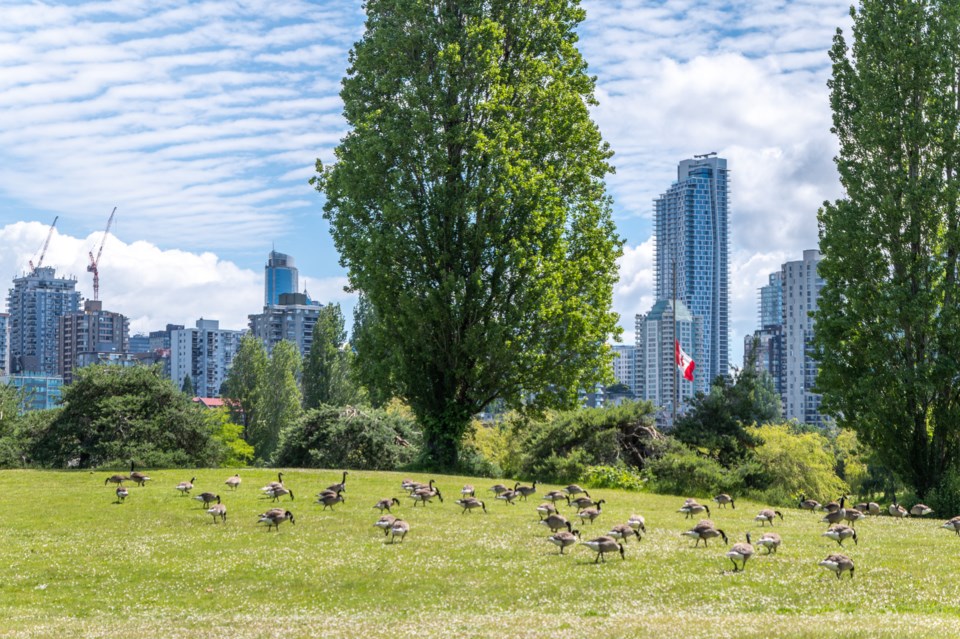At the last official count, there were 3,500 Canada Geese in Vancouver. But that was in 2016 and the "number will have increased substantially since then," according to the City of Vancouver. A report produced the same year as the count estimates that the geese population could get as high as 5,900 by 2025.
"We know there are several thousand in the West End alone," a spokesperson for the city tells V.I.A. in an email and a current study is underway to determine a more updated figure.
Canada Geese can live for up to 20 years and a single breeding pair can produce 90 to 150 direct descendants in their lifetime (based on an average of five to eight eggs per year). As the additional generations mature the numbers really add up.
They also have inefficient digestive systems and produce a lot of excrement for their size compared to other species.
In a recent media release, the city expressed concern over the damage that "a thousands-strong flock" could cause to public parks and green spaces in Vancouver.
They eat grass, dig holes, and pollute beaches, swimming pools, and fields with their droppings.
"They defecate on average every 12 minutes, presenting a significant challenge in cleaning up after them," says the city. "311 often receives complaints about the geese and their droppings, usually in the summer."
Geese are also aggressive during mating season and destroy juvenile salmon habitats by eating the protective sedge grasses in local estuaries.
The city has a plan to combat the hoard but they are asking for the public's help for it to be effective.
The City's plan to deal with the Canada goose population
Vancouver is an ideal habitat for Canada Geese and they have no natural predators so the city hopes to humanely reduce the population with a method known as addling.
Addling involves replacing laid eggs with previously frozen ones so that the geese will continue to sit on the eggs but they will never hatch. Eventually, the goose will move on.
The approach is considered humane by the BC SPCA and PETA and Park Board staff are trained to addle with minimal disturbance to the birds. However, the city needs the public to report nests when they see them.
Typically geese like to nest on balconies, ledges, and rooftops which Park Board staff wouldn't otherwise have access to. If residents see signs of nesting geese they are asked to report it online, call 311, or email [email protected].
A lone alert or aggressive goose standing in the same spot day after day is a strong indicator that there is a nest nearby.
According to the city, in the last decade, thousands of eggs have been addled by the Park Board which has reduced the growing population. Today's geese are reportedly descendants of several different subspecies of Canada Geese, introduced to Vancouver in the 1960s and 1970s to "enhance wildlife viewing and hunting."
Interestingly, it is legal to hunt up to 10 geese per day in B.C. but illegal to feed them and all other wildlife in Vancouver. People caught feeding geese could incur a fine of up to $500.
Feeding geese can not only contribute to the defecation problem but it can also make them lay more than one "clutch" (batch of eggs) per season which doesn't occur naturally without human interference thus totally undoing the addling program.


